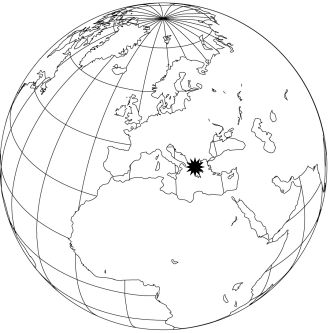An initial research trip funded by UKWCT (£2000) organised in September 2009 began the process of listening to the various interest groups about their concerns regarding wolves and brown bears in northern Greece. Meetings with local politicians, shepherds, biologists and one of the key conservation groups in the area, Callisto, were conducted. The objective was to share with groups the nature of what a human dimensions project could offer and to explore interest amongst the various groups in possibly working together, the first step in any human dimension effort. One of the key issues is the loss of carnivores particularly brown bears more so than wolves because of new highway infrastructure through large carnivore habitat. While efforts have been made to build green bridges (areas where large carnivores can safely cross the highway), there have still been bear-vehicle collisions due to inadequate fencing on parts of the highway. This initial visit provided opportunities to view the habitat, become familiar with the key issues, meet some of the key players and gauge interest in working together toward solutions. Charilaos Pilidis, a representative of Callisto accompanied Alistair Bath acting as driver, translator and colleague during this initial exploratory research trip. The positive news is a willingness to develop a cooperative project that will help better engage local people in conservation efforts toward wolves and brown bears.
In March 2010, UKWCT contributed an additional 7000 euros to this initiative so to begin the data collection, support travel expenses and local salaries to understand and address the key issues of the local people in northern Greece in this trans-border area near Bulgaria and Albania. These funds will further assist Callisto in its conservation efforts in the region. Alistair is going to begin to explore attitudes and beliefs of rural Greek residents toward wolves in an area of a proposed trans-boundary park between Bulgaria, Albania and Greece. The area close to the border has bears and wolves, and further south below the 39th parallel wolves do exist but are subject to different management based on EU regulations. The objective would be to better understand the attitudes of local residents so to identify potential "hot spots" of conflict and target these areas with extra conservation efforts (e.g. educational efforts, law enforcement, guardian programs, livestock preventative techniques, etc).
In addition, these monies from the UKWCT will support a different project in Greece focused on evaluating the effectiveness of a new wolf CD produced recently. This would be done using an experimental research design in a variety of schools so to truly assess whether the program has increased knowledge and influenced attitudes. The purpose is not only to evaluate the existing CD but be able to refine messages and produce even better educational efforts that would target messages most directly linked to attitude, and thus more likely to influence positive conservation behaviour.
Fact file

Project managed by: Alastair Bath
UKWCT donations: £8,500 since 2009
